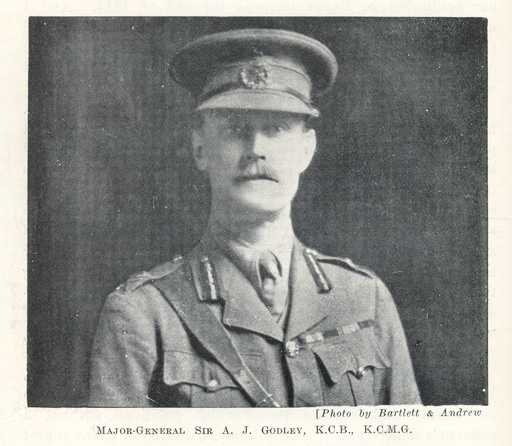
General Alexander Godley (1867-1957) commanded the New Zealand Expeditionary Force during the First World War. At Gallipoli, he was in charge of the New Zealand and Australian Division that landed on 25 April 1915. Like other senior officers at the time, he found it difficult to adapt to the situation on the peninsula. Godley earned a reputation amongst the New Zealanders as an aloof and ineffective leader.
Gallipoli was a harsh test for Godley and his troops. If the men came out with the better reputation, this was at least partly because their courage was underpinned by Godley’s training. Godley himself, however, appears not to have taken account of the need to survey the rugged terrain, the poor communications, the loss of some of his most competent officers, and the declining physical condition of his troops. He claimed later that the men under his command received adequate amounts of food; in reality, the quality of the food on Gallipoli was appalling.
New Zealand’s Minister of Defence, James Allen, told Major-General Andrew Russell that it would have been better if the government had placed somebody else in command once Godley had completed his training programme. However, the alternative in 1915 for a then-unknown division would probably have been a retired British general with even poorer administrative and operational skills. Other options, such as Russell and Edward Chaytor, were too inexperienced for divisional command so early in the war.
Despite the Gallipoli debacle, Godley retained the confidence of his superiors; when Parliament raised questions about his performance and Godley offered to resign, Allen publicly supported him.

Community contributions